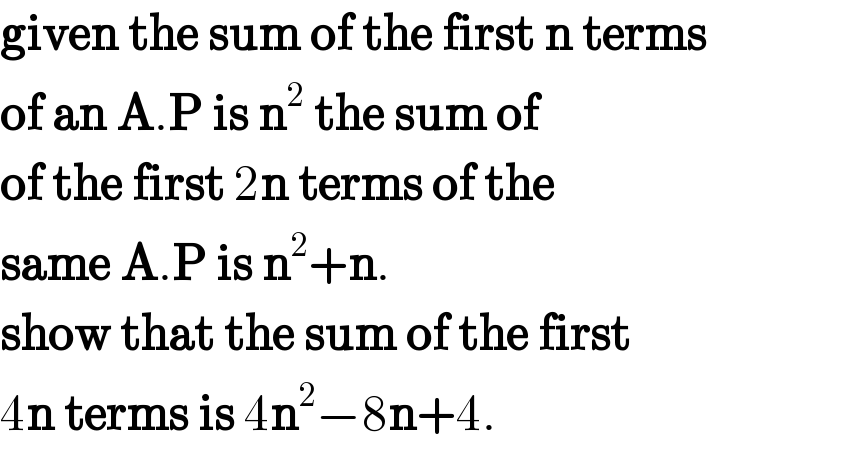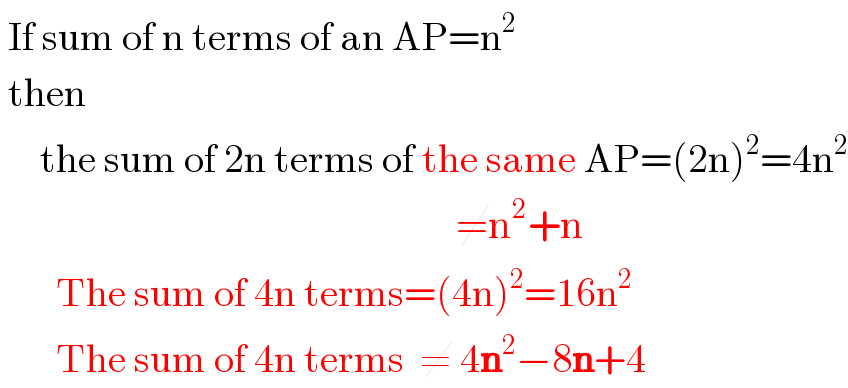
Question and Answers Forum
Question Number 34707 by mondodotto@gmail.com last updated on 10/May/18

Commented by Rasheed.Sindhi last updated on 10/May/18

Commented by mondodotto@gmail.com last updated on 10/May/18

| ||
Question and Answers Forum | ||
Question Number 34707 by mondodotto@gmail.com last updated on 10/May/18 | ||
 | ||
Commented by Rasheed.Sindhi last updated on 10/May/18 | ||
 | ||
Commented by mondodotto@gmail.com last updated on 10/May/18 | ||
 | ||